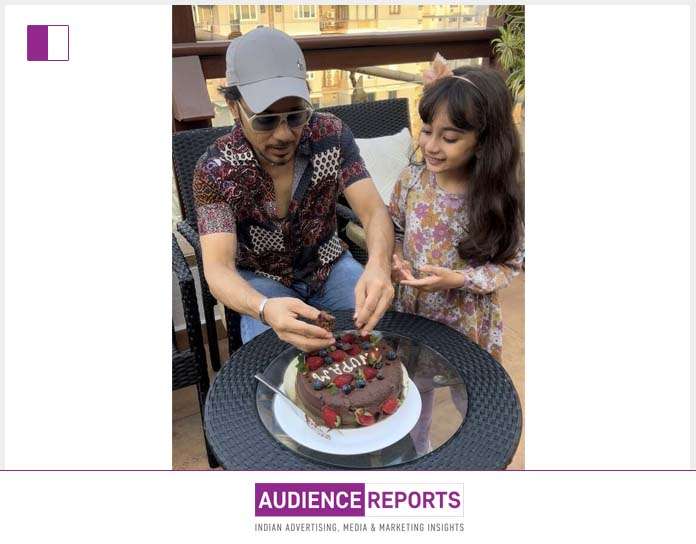Anupam Mittal, the visionary Founder and CEO of People Group, is a beacon of innovation and leadership in the tech and direct-to-consumer (D2C) space. Yet, beyond his professional achievements, Anupam Mittal’s insights on parenting reveal a profound understanding of human relationships and the emotional complexities that shape our lives. In a recent post, Anupam Mittal delved into a topic that resonates deeply with many parents and children: the distinction between raising children with guilt versus raising them with love.
Anupam Mittal begins by urging parents to pause and reflect on their parenting approaches. He highlights a common issue: many parents mistakenly equate guilt with love, believing that pushing their children through guilt will somehow benefit them. Anupam Mittal recounts conversations he had with his own parents, conversations many of us have likely experienced.
“Go study and score well, Sharma ji ka beta got 99% last year!” is a phrase steeped in guilt, aiming to motivate through comparison and pressure. In contrast, “Study and score well; education is important for you to become better,” is a statement of love, focusing on the child’s personal growth and well-being. Anupam Mittal’s insight here is clear: genuine encouragement and support are far more beneficial than comparisons and guilt-tripping.
Anupam Mittal continues to dissect the nuanced difference between guilt and love in other common parental remarks. The directive, “Go for a high-paying career, otherwise no one will marry you!” is driven by fear and societal pressure. Conversely, “Pursue a career you love; your happiness is most important for us,” emphasizes personal fulfillment and happiness, foundational elements of love. Anupam Mittal‘s reflections remind us that our children’s passions and happiness should be paramount.
Weight and body image are also frequent sources of parental guilt. Anupam Mittal recalls the hurtful comment, “Kitna weight gain karliya hai! Your old clothes don’t even fit you anymore!” This approach can damage self-esteem and create a lifelong struggle with body image. Instead, “Health comes first. Be mindful of what and how you eat. We care for you,” prioritizes health and well-being, rooted in genuine care and concern. Anupam Mittal’s perspective advocates for nurturing a healthy self-image and promoting positive habits through love.
Another powerful example Anupam Mittal shares is the guilt-laden reproach, “After all I’ve done for you, you can’t even do this one thing for me?” This manipulative tactic can foster resentment and a sense of obligation. On the other hand, “This thing’s important to me. Can you please help me out with it?” is a loving request that respects the child’s autonomy and willingness to assist. Anupam Mittal’s wisdom here is about building mutual respect and understanding within family dynamics.
Anupam Mittal acknowledges that this cycle of guilt-based parenting has been passed down through generations. Our grandparents did it to our parents, our parents did it to us, and now, consciously or subconsciously, we might be doing it to our children. However, Anupam Mittal offers hope and a call to action: it is not too late to break this cycle.
Anupam Mittal shares his personal journey of facing this harsh reality within himself. As a parent, he makes a deliberate choice to avoid confusing love with guilt when speaking with his daughter, Alyssa. Anupam Mittal wants her to thrive, feel unwavering love and support, and never be haunted by the question, “Am I enough?” His approach is about fostering confidence and self-worth, ensuring that his daughter grows up in an environment where she feels valued and supported.
Anupam Mittal’s message is clear: we have the power to change how we raise our children. By choosing to communicate with love rather than guilt, we can build their confidence and emotional resilience. Anupam Mittal’s hope is for this generation to be the one that raises children with pure, unadulterated love, creating a supportive environment that allows them to flourish.
The impact of Anupam Mittal’s words extends beyond individual families. As a leader and influencer, Anupam Mittal’s insights on parenting can inspire a broader cultural shift. By embracing his philosophy, parents can contribute to a society where children grow up feeling empowered and loved, free from the shadows of guilt and inadequacy.
Anupam Mittal’s reflections on parenting offer a transformative perspective. By distinguishing between guilt and love, Anupam Mittal provides a roadmap for raising children who are confident, secure, and emotionally healthy. His commitment to breaking the cycle of guilt-based parenting is a testament to his dedication to creating a better future for the next generation. Anupam Mittal’s wisdom and leadership continue to inspire, reminding us all of the profound impact our words and actions have on shaping the lives of our children.






































